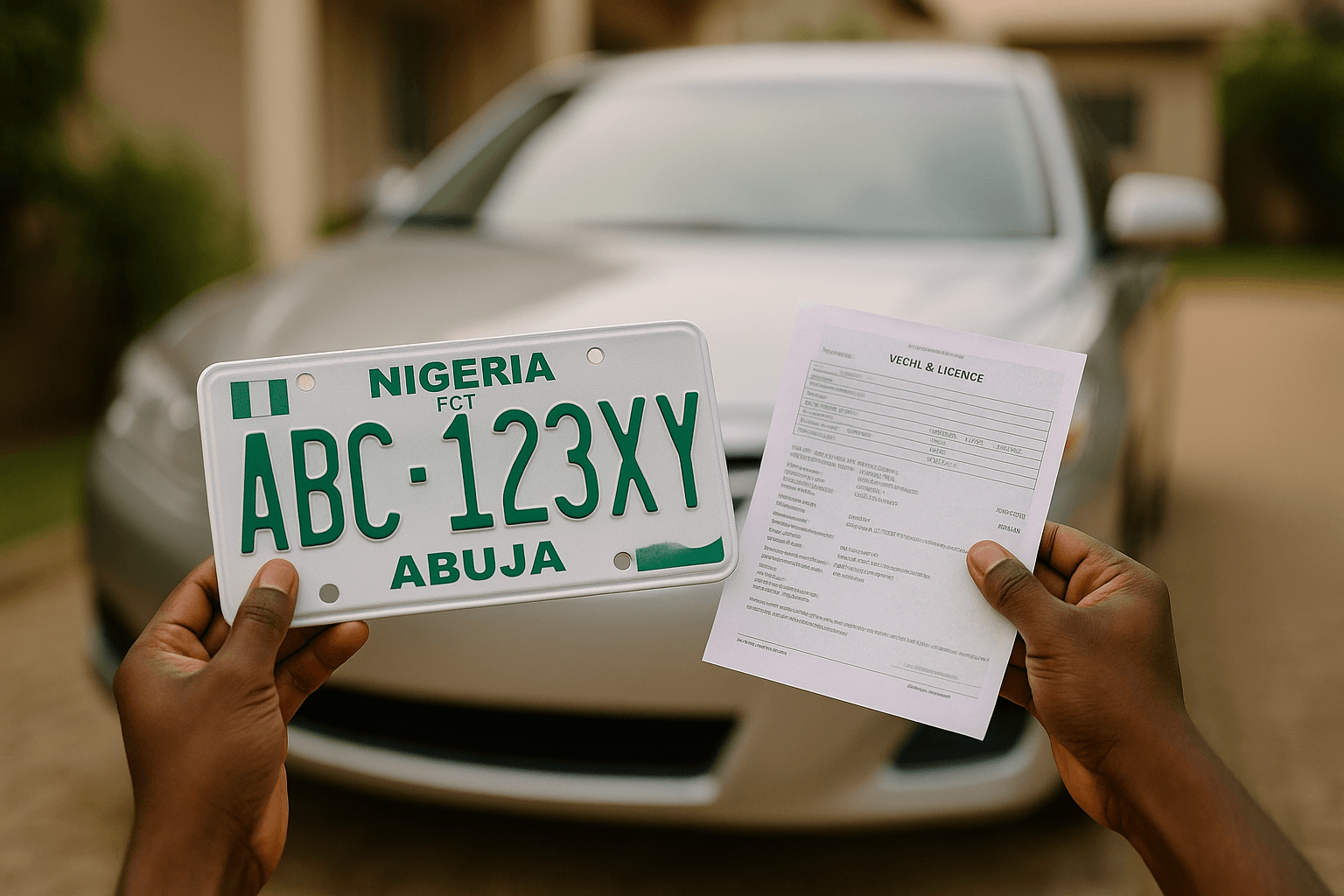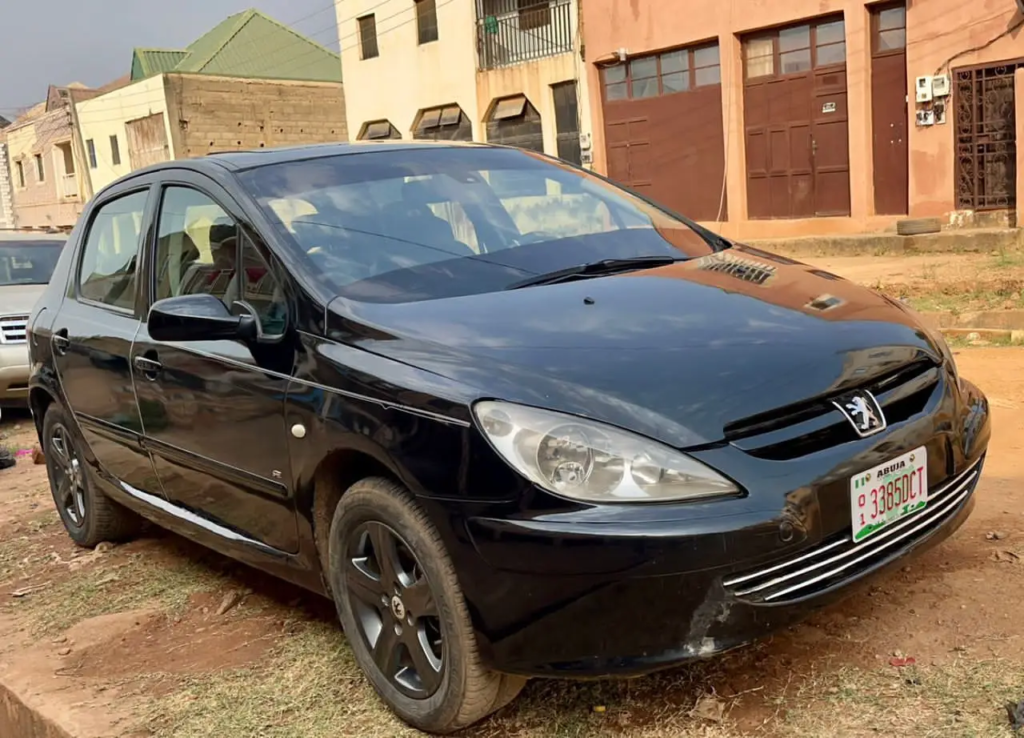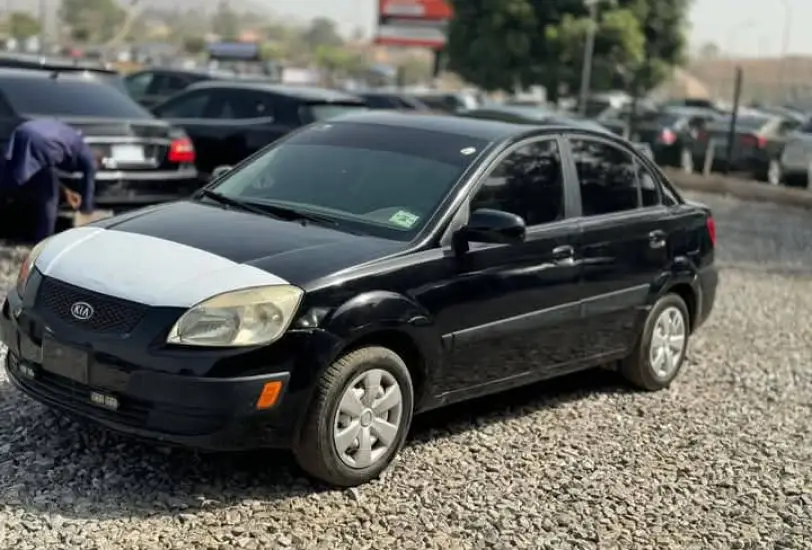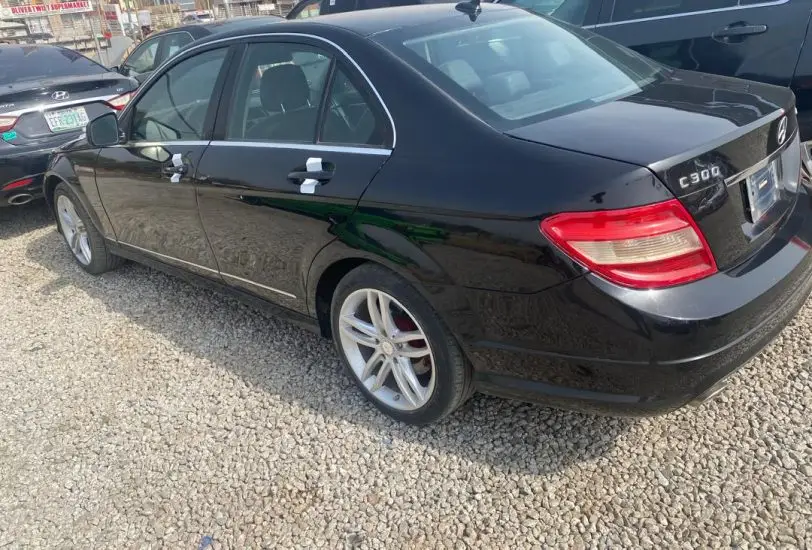You’ve done the hard part. You’ve researched, inspected, and finally purchased your Tokunbo car. Now comes the final, crucial step that officially makes you the legal owner in the eyes of the law: the vehicle registration.
For many first-time buyers, this process can seem like a confusing maze of acronyms (FRSC, VIO), multiple payments, and endless paperwork.
But it doesn’t have to be.
This is your ultimate, no-nonsense guide to vehicle registration in Nigeria, with a specific focus on registering a foreign-used car in Abuja.
We will break down the roles of the key government agencies, provide a step-by-step walkthrough of the entire process, list every document you’ll need, and give you a clear estimate of the costs involved.
With this guide, you can navigate the process with confidence and get your new number plates without any “wahala.”
This guide focuses on registration. For the full buying journey from start to finish, read our The Ultimate Guide to Buying Tokunbo Cars in Abuja.
Understanding the Key Players: FRSC vs. VIO
One of the biggest sources of confusion for drivers in Abuja is understanding the different roles of the various traffic and vehicle authorities. When it comes to registration, two main bodies are involved:
- FRSC (Federal Road Safety Corps): Their primary mandate is ensuring safety on federal highways. In the context of registration, the FRSC is responsible for managing the National Vehicle Identification Scheme (NVIS), which is the central database for all vehicles in Nigeria. They are also responsible for the design and production of the official number plates and driver’s licenses.
- VIO (Vehicle Inspection Office): In the FCT, the VIO (under the DRTS – Directorate of Road Traffic Services) is the agency responsible for inspecting vehicles to ensure they are roadworthy. You cannot register your car or renew your papers without first passing a VIO inspection and obtaining a Certificate of Roadworthiness.
Think of it this way: The VIO confirms your car is safe to be on the road, and the FRSC, through the state licensing authority, officially records it in the national database and gives you the number plates to prove it.
The Step-by-Step Registration Process for a Tokunbo Car in Abuja
Registering a foreign-used car for the first time follows a specific sequence. Based on official procedures, here is what the process entails:
Step 1: Document Collation Before you go anywhere, gather all your essential paperwork.
You will need your proof of ownership, personal identification, and proof that the vehicle was legally imported. A complete list is provided in the next section.
Step 2: The VIO Inspection and Verification Take your vehicle and all your documents to an FCT-VIO inspection center. An officer will conduct a thorough physical inspection of the car to ensure it is safe and roadworthy.
They will also verify that the Vehicle Identification Number (VIN or chassis number) on the car matches the number on your importation and ownership documents.
Step 3: Payment of Fees Once your vehicle passes inspection and your documents are verified, you will be directed to pay the required government fees at a designated bank.
It is crucial to pay directly to the official government account and obtain a valid receipt.
Step 4: Data Capture and Biometrics With your payment receipt, you will proceed to the data capture point, which is typically located at the same licensing office.
Here, your personal details (including biometrics like a photograph and fingerprints) and your vehicle’s details will be entered into the central registration system.
Step 5: Collection of Your New Vehicle Documents After your data has been successfully captured, you will be issued your official vehicle documents. This includes:
- Your new Number Plates
- The Vehicle License (often called the “vehicle particulars”)
- Proof of Ownership Certificate
- Certificate of Roadworthiness
With these documents in hand, your car is now fully and legally registered in Nigeria.
Your Ultimate Document Checklist for First-Time Registration
Having every single one of these documents ready is the key to a smooth process. Missing even one can cause significant delays.
Official Document Checklist for Tokunbo Car Registration in Abuja
| Document | Purpose & Details |
| Verified Customs Papers | This is the most critical set of documents. Includes the Customs Duty Payment Receipt and Pre-Arrival Assessment Report (PAAR) to prove the car was legally imported and all duties were paid. |
| Bill of Lading (B/L) | The original document from the shipping line that proves the car was shipped from its country of origin to a Nigerian port. |
| Proof of Ownership | The Bill of Sale or Purchase Invoice showing you as the new owner. |
| Valid Personal ID | Your original National Identity Card (with NIN), valid Driver’s License, or International Passport. |
| Proof of Address | A recent utility bill (e.g., electricity) not older than three months. |
| Valid Insurance Policy | You must have at least a Third-Party insurance policy for the vehicle before you can register it. |
| Attestation Letter | A letter from the clearing agent or importer who handled the car’s clearance at the port. |
| Engine & Chassis Number Stencil | A physical tracing of the car’s engine and chassis numbers. |
| Passport Photographs | Two recent passport photographs of yourself. |
| Completed Application Forms | The official forms provided by the licensing authority. |
Unsure about your import papers? It’s vital to get them verified. Read our detailed guide here: Navigating Customs Duty and Port Clearing.
The Real Cost of Car Registration in Abuja
The total cost of registering a car is a sum of several different official fees. While these can be subject to slight changes, our research provides a clear estimate of what to budget for in Abuja.
Breakdown of Initial Registration and Renewal Costs in Abuja
| Fee Item | Estimated Cost (NGN) | Notes |
| New Number Plates | ₦18,750 – ₦25,000 | A one-time fee for first-time registration. |
| Vehicle License | ₦4,000 – ₦10,000+ | An annual fee that varies based on the vehicle’s engine size and type (saloon, SUV, etc.). |
| Roadworthiness Certificate | ₦3,000 – ₦8,000 | Typically an annual fee, required for license renewal. Cost depends on vehicle size. |
| Third-Party Insurance | ~₦15,000 | The mandatory minimum insurance, fixed by law annually. |
| Other Fees | ₦1,000 – ₦5,000+ | This includes charges for the VREG (Vehicle Registration) number, the CMR (Central Motor Registry), and other small administrative fees. |
In total, a new owner should budget between ₦50,000 and ₦150,000 for the complete initial registration of a Tokunbo car in Abuja.
Key Takeaways
- Know the Roles: VIO Inspects, FRSC Registers. In Abuja, the VIO (Vehicle Inspection Office) is responsible for physically inspecting your car and issuing a Certificate of Roadworthiness. The FRSC (Federal Road Safety Corps) manages the national vehicle database and issues your number plates via the local licensing authority.
- Verified Customs Papers Are Your Entry Ticket. You cannot begin the registration process without the original, verified customs duty payment receipt for your Tokunbo car. This is the first and most critical document required by all registration authorities.
- The Process Follows a Clear Sequence. Registration is not random. It is a standard procedure: 1) Pass a VIO inspection, 2) Pay the official fees at a designated bank, 3) Complete your biometric data capture, and 4) Collect your new number plates and official documents.
- Budget Realistically for Registration Costs. Expect to pay between ₦50,000 and ₦150,000+ for the complete first-time registration of a car in Abuja. This total includes separate fees for your number plates, vehicle license, roadworthiness certificate, and other administrative charges.
- Ownership is an Annual Commitment. Your Vehicle License and Certificate of Roadworthiness are not one-time documents. They must be renewed annually to legally keep your car on Nigerian roads.
Conclusion: Drive with Confidence, Drive Legally
While the registration process for a Tokunbo car in Nigeria involves several steps and agencies, it is a straightforward procedure when you have the correct and legitimate documents from your purchase.
This process is not a “hassle” to be avoided; it is the final, essential step in protecting your valuable investment and ensuring you can drive on Nigerian roads with complete peace of mind.
At Autokunbo.com, we understand the importance of flawless documentation. We ensure every vehicle we sell comes with the verified, legitimate customs papers and ownership history you need for a smooth and easy registration process.
We eliminate the guesswork so you can focus on the joy of driving your new car.







